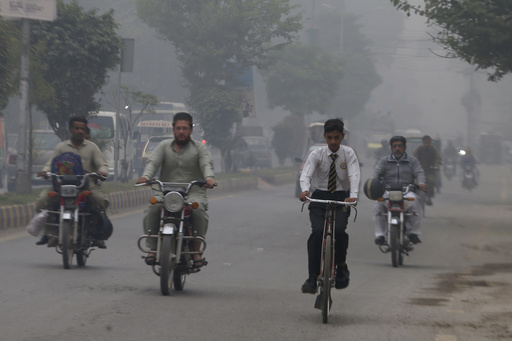
ISLAMABAD — On Monday, the U.N. children’s agency issued a concerning statement regarding the health risks posed to 11 million children in the eastern province of Punjab, Pakistan, due to alarming levels of air pollution, which experts have classified as a new seasonal occurrence in recent years.
Toxic smog has enveloped Lahore, Pakistan’s cultural hub, alongside 17 other districts in Punjab since last month. Health authorities report that over 40,000 individuals have sought treatment for various respiratory issues attributed to this environmental crisis.
Abdullah Fadil, UNICEF’s representative in Pakistan, emphasized the urgent need for the government to take substantial action in reducing air pollution, particularly for the 11 million vulnerable children under the age of five and other affected groups. “Before these unprecedented spikes in pollution, roughly 12% of fatalities among children under five in Pakistan were linked to poor air quality,” stated Fadil. He added, “While it may take time to fully understand the ramifications of this year’s extreme smog, it is clear that such heightened pollution levels can have catastrophic consequences for children and expectant mothers.”
In response to the severe pollution, educational institutions in parts of Punjab have been closed until November 17 as a precautionary measure to safeguard children’s well-being. Additionally, local authorities recently mandated the closure of all parks and museums for a period of ten days and are advising the public to limit unnecessary travel.
Data from the Environmental Protection Department of Punjab indicates that the city of Multan was the most polluted on Monday, registering an air quality index near 800, where levels exceeding 300 are already deemed hazardous for health.
Although the government has implemented mandatory face mask regulations, compliance has been notably low among the populace. Furthermore, officials have stated they are exploring the potential of inducing artificial rainfall as a strategy to alleviate the ongoing pollution crisis.
